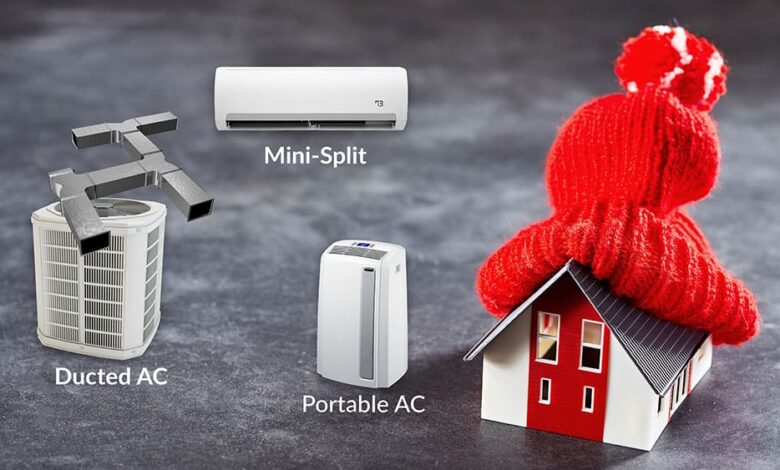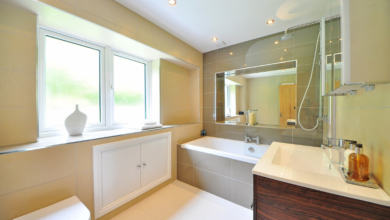Peculiarities of a Heat Pump: what you should know

More and more people are opting for eco-friendly heating devices when planning the construction of their own single-family homes. Heat pumps are one of the most popular choices. Find out how a heat pump works and what are the advantages and disadvantages of this solution.
The unquestionable advantage that a heat pump has is its environmental friendliness. The use of renewable energy helps reduce the environmental devastation that is proceeding at an alarming rate. If you’re looking to upgrade your system, it might be time to replace heat pump with a more efficient and sustainable option. In the article, we at the Alpha Mechanical team provide information on how a heat pump works, what the installation of its various types involves, and what the advantages and disadvantages of this heating system are.
What is a heat pump?
A heat pump is a heating device that is equipped with a closed circuit filled with a working medium. The structure of a heat pump is unchanged. It consists of 3 components: the lower heat source, the upper heat source, and the heat pump. The lower heat source provides heat, which is then transferred through pipes with the medium to the upper heat source.
A heat pump can take one of 3 forms: water, air, or ground. Depending on the chosen method of energy extraction, the total cost of obtaining heat energy can vary.
Properly sized heat pumps allow not only to provide energy for water heating but also for the proper operation of air conditioning or ventilation. For a small residential building, meeting the needs of a standard family, a well-sized heat pump can be the only heating device that will provide heat energy all year round.
Usually, the biggest investment is the installation of the pumps and the work involved. When deciding to install a heat pump, you have to expect a larger expense at the very beginning. The operating costs are small, especially for heating devices that rely on the operation of either ground or air energy extraction. All you require is regular maintenance of the components, especially the compressor or filters that the heat pump is equipped with. In general, depending on the operation of the system, the establishment of this heating system pays for itself within a few years.
Heat pump heating is based on the laws of physics – each type of pump works slightly differently, as you will see in the paragraph below. The general rule of the pump is to receive heat from a lower source – this can come from the ground, a body of water, or the air. It is then transferred by the pump to the heated building and distributed by the upper heat source, such as the central heating and water system.
However, what is most important – a heat pump is a form of heating that is much more environmentally friendly than other heating methods such as gas, coal, or oil. Well, a good installation also does not absorb a large amount of electricity, which is an additional source of economy in the home and does not suffer from this current. If you encounter issues with efficiency, it may be necessary to replace the heating pump compressor to maintain optimal performance and continue reaping the benefits of this eco-friendly heating solution.
How does a heat pump work?
Although heat pumps differ, mainly in the lower heat source, their operation is based on the laws of physics, or rather, thermodynamics – the transformation of the state of matter from liquid to vapor and vice versa.
In the simplest terms, the lower source with a low-temperature transfers heat to the upper source with a high temperature. The heat pump circuit contains a fluid that turns into a gas at a low temperature, thereby drawing heat from the environment. This gas is then forced into the compressor, and its temperature rises. It is electricity that is needed for this final step. It is this heat that is used for space and water heating. When considering long-term maintenance, it’s important to factor in the heat pump compressor replacement cost to ensure your system remains efficient and effective.
However, this is not the end of the cycle. As the gas gives up heat, it begins to condense and becomes a liquid again. Then its temperature will be significantly reduced, and it will be used again as a carrier in the next cycle.
How is a heat pump built?
There is one thing that remains virtually unchanged – the design of the heat pump. The types of devices do not differ in this regard in practically any way except for where the pump’s bottom source is mounted.
A heat pump consists of:
- an evaporator, which is the lower energy source; in it, the working medium evaporates at a low temperature, which leads to an increase in pressure,
- a compressor, which, as the name suggests, under the influence of an increase in pressure, compresses the gas and increases its temperature,
- the condenser, which is the upper source of energy; this is another heat exchanger, which this time transfers heat to the fluid or air flowing through the system,
- the expander, which is the valve into which the working fluid flows from the condenser and is put back into service as part of the pump’s heating cycle.
Is a heat pump a solution for you?
Well adapted to the needs of a particular building, a heat pump may be the only heating system you need – it allows you to heat rooms and water. A wide range of green energy sources reduces air pollution while helping you gain the energy you need to heat water and operate your ventilation system or air conditioning. Although it is initially a significant investment, it pays for itself in terms of a multi-year spending plan, especially when compared to heating systems based on the use of fuels, electricity, or gas.
Conclusion
Heat pumps not only help you save money but also contribute to protecting the planet. Thanks to their ability to utilize renewable energy sources, they represent the future of heating and hot water. By choosing a heat pump, you are not only investing in your comfort but also becoming part of a global movement for a clean and sustainable future. A heat pump is not just a technology; it is a step towards environmental awareness and innovation in your home.



